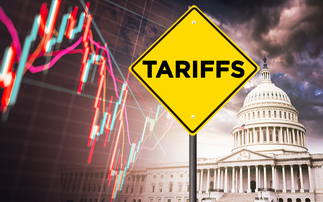Jonathan Stapleton looks at why schemes need to get more vocal about tax avoidance in the wake of the Panama paper furore.
Few people had heard of the Panama-based firm, Mossack Fonseca until a collective of journalists from 76 countries began publishing stories exposing the hidden wealth of politicians, celebrities and others at the beginning of this month.
The so-called "Panama papers" - based on 11.5m documents leaked from the law firm's database - covered a period of almost 40 years and contain details of thousands of opaque offshore companies, trusts and foundations used by Mossack Fonseca's clients.
The furore over the release of the documents has engulfed presidents, prime ministers and even royalty - pushing some to resign from their positions as a result.
Yet, while there will undoubtedly be some who have used offshore structures as a way to hide wealth and illegally evade tax, there are many more who use such structures in order to legally minimise the amount of tax they have to pay.
Large corporates have often used such offshore structures to improve their tax efficiency - sometimes going to great lengths to move profits from high tax economies to those with lower, or even zero, rates of corporation tax (see: Double Irish with a Dutch sandwich below).
And investment firms use these sorts of structures too - especially those managers in the alternative assets space. Many private equity firms, for instance, use offshore vehicles to hold the assets they buy to improve the investment performance of their funds.
Pension funds are not, as a rule, subject to tax but there are two important questions trustees need to be able to answer.
First, the ethical one - should schemes be investing in companies and investment vehicles that use offshore arrangements to minimise the amount of UK tax paid? Does scheme investment imply tacit support for the tax structures they use? And, if such investment is acceptable, are there red lines pension funds should not cross?
The second question is more operational in nature. If a pension fund has alternative investment holdings held in an offshore structure, is there sufficient oversight of these assets and are sufficient safeguards in place to protect the assets from fraud or political risk?
Trustees have a fiduciary duty to maximise their scheme's long-term financial returns - which, no doubt, includes making sure investments are structured in the most efficient way possible. But there surely must be limits to such minimisation strategies.
The Mossack Fonseca revelations will only serve to increase the scrutiny of those companies and investment funds using offshore tax minimisation structures.
As asset owners, pension funds must take an active part in this debate and let the firms they invest in know what they consider acceptable and unacceptable tax planning.
A double Irish with a Dutch sandwich: An example of how corporates reduce their tax liability
There are many ways that corporates can legally reduce the amount of tax they pay.
Examples of this include the curiously named ‘double Irish with a Dutch sandwich' - a strategy that relies on the fact that Ireland does not levy taxes on income booked in subsidiaries of Irish companies that are outside the state and also does not levy withholding tax on certain receipts from European Union member states.
Under this structure, corporate profits earned outside Ireland are sent to an Irish subsidiary, which holds, say, the firm's intellectual property.
Tax payable in Ireland is 12.5% but the Irish company pays a royalty to a Dutch subsidiary, for which it gets an Irish tax deduction.
The Dutch company pays the money to yet another subsidiary in Ireland, which has no withholding tax on inter-EU transactions. This subsidiary pays no tax because, while it is based in Ireland, it is controlled outside the country in the Cayman Islands, Bermuda or another offshore centre.









